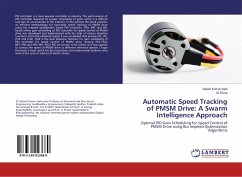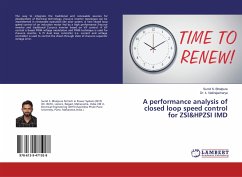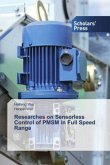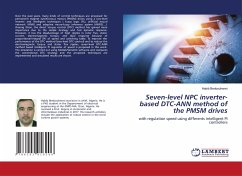PID controller is a most popular controller in industry. The performance of PID controller depends on proper scheduling of gains which is a difficult task due to uncertainties in the industry. In this context this book presents an efficient methodology for automatic speed tracking of PMSM drive using bio inspired optimization based PID controller. PSO, BAT and FFA based online gain scheduling of PID controller for speed control of PMSM drive was developed and implemented with the help of various objective functions. From the obtained results it can concluded that among ISE, IAE, ITSE and ITAE, ITAE is the best objective function for gain scheduling of PID controller for speed control of PMSM drive. Among PSO+PID, BAT+PID and FFA+PID, PSO+PID are proven to be robust as it was applied to control the speed of PMSM drive at different reference speeds. I hope this book is most useful for the researchers and masters level students who were in the area of control of electric drives.
Bitte wählen Sie Ihr Anliegen aus.
Rechnungen
Retourenschein anfordern
Bestellstatus
Storno








